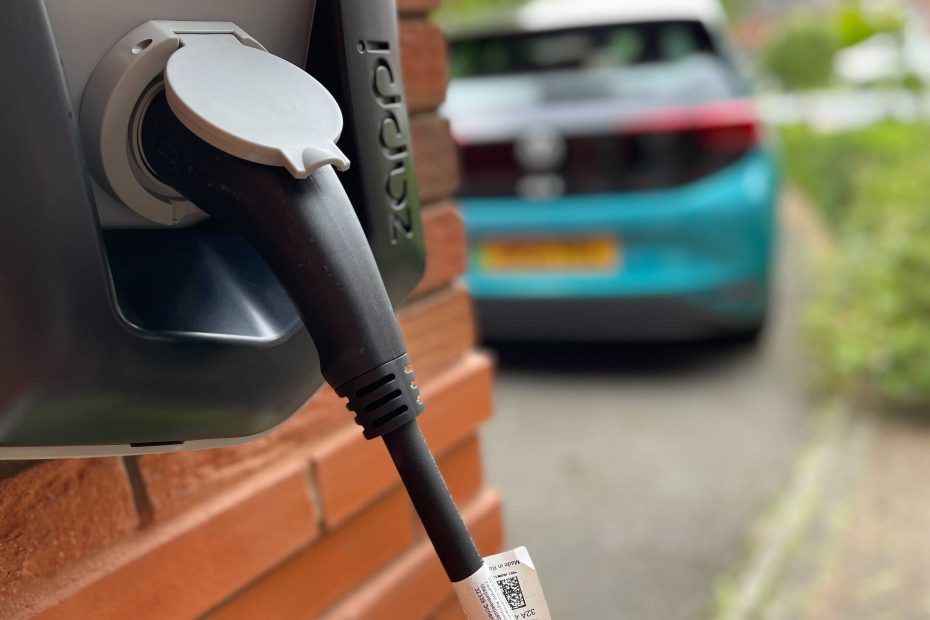The FRED Project investigated the potential of smart charging for electric vehicles to reduce the strain on the grid. The collaborative project between Evergreen Smart Power, myenergi, GenGame, Energy Systems Catapult, and SPECIFIC, has now released a final report. Peter Bullock from Evergreen Smart Power breaks down the findings…
Sales of electric vehicles are skyrocketing – a quick stroll past any traffic jam in the country will show you that.
But just as rush hour brings transport networks to a standstill twice a day, so the electricity network will struggle if all the cars, buses, trucks and vans in the country attempt to recharge their batteries simultaneously.
National Grid modelling demonstrates that “Smart Charging” is key in the transition to Net Zero. With Smart Charging, electric cars will draw energy from the grid at the most appropriate time, when energy is clean, abundant, and stable. Today, at home, that generally means car charging occurs in the early hours of the morning. However, in future it could mean charging when windy weather means excess wind power is being generated, or having your charging automatically coordinated with your neighbours.
But questions remain:
- What does this domestic smart charging look like in practice?
- How much flexibility do people really have in terms of when they can charge their cars?
- Can we, and if so, how can we persuade and encourage people to participate?
- Is the market geared up to reward smart charging?
- Is the technology ready?
For the past three years, Evergreen Smart Power has been answering these questions, working closely with 250 members of the public, fellow innovative British startups myenergi and GenGame, as well as SPECIFIC and the Energy Systems Catapult.
Our collaboration, the FRED project, has demonstrated smart charging in action, studied driver attitudes, evaluated new business models, and upgraded the technology that makes it all possible.
Domestic smart charging works
Almost every driver has plenty of flexibility in when and how they charge their car, and using Evergreen’s software the carbon footprint powering a car can be reduced by over 20%.
It’s also financially valuable – our data suggests flexibility is worth about £110 a year for a typical driver, and far more the more driving (and therefore recharging) you do.
Interviews with over a thousand current and prospective EV drivers proved that the concept of smart charging is broadly popular, too. If well incentivised, drivers will gladly use their cars to support a greener energy system – as long as they still feel in full control of their charging.
From an electricity network point-of-view, our data shows that customers respond very well to soft incentivisation and nudges, and are willing to charge outside peak hours if given a good reason. In FRED this led to peak charging loads of 1 kW per vehicle, and this peak was observed at 1am because of widespread adoption of time-of-use tariffs.
Barriers to smart charging
Although we have shown the technology is ready, people aren’t currently incentivised to do smart charging for a few reasons:
- Most domestic energy suppliers aren’t using smart meters to perform half-hourly settlement (paying for energy based on the exact time it was consumed). Half-hourly settlement is a necessary step to get cost savings from smart charging.
- The balancing service marketplaces that network operators use to keep their systems stable are still in the early stages of opening up to household-scale participation.
- Most existing ways of doing smart charging involve time-of-use tariffs where electricity is generally cheaper overnight. However, many customers are suspicious: they don’t want to pay more during the day to get cheap energy overnight.
- Cars do not share their state-of-charge with domestic chargepoints, making it difficult to correctly gauge how much energy a car needs on a given night.
What’s next?
The project partners are working closely together and with other forward-thinking industry partners to develop ways drivers to access the benefits of smart charging. Evergreen is also developing ways to bring “smart charging” to other groups of consumers, including EV drivers living in apartment blocks, and heat pump customers via the Homely Smart Thermostat.


